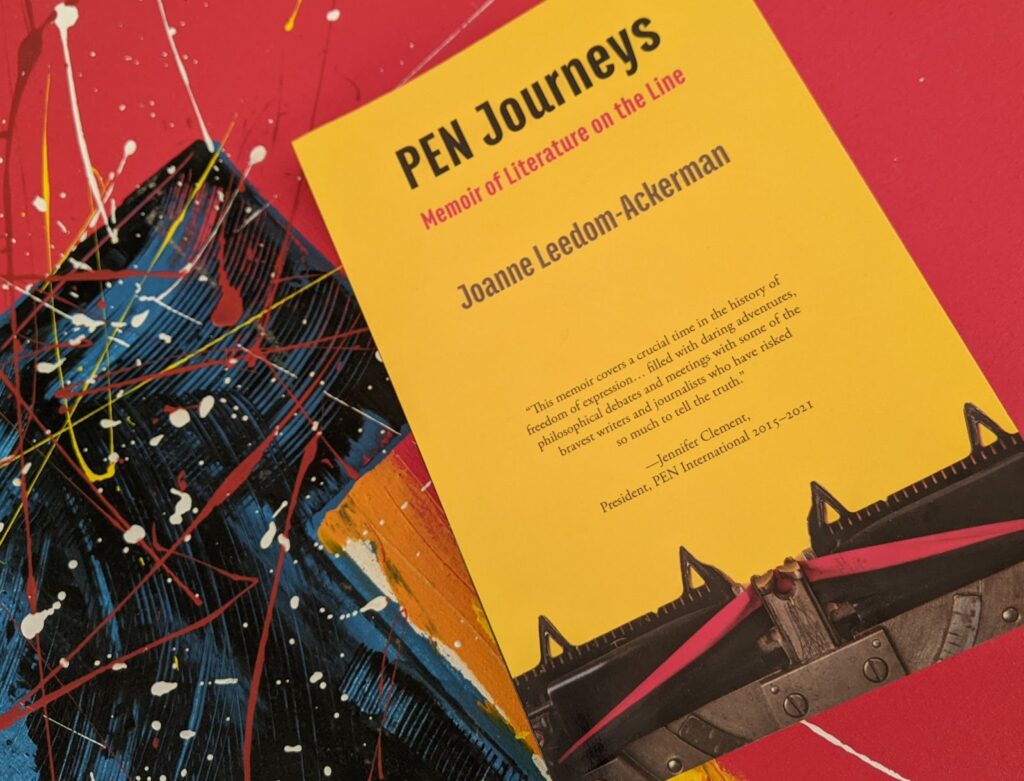
After boarding a bus in Pakistan’s capital of Islamabad for a day trip to the ancient archeological site of Taxila with the nonprofit International Center for Journalists in 2013, I fell into easy conversation with my seatmate. A former member of the Brown University Board of Trustees, Joanne Leedom-Ackerman had long served on the boards of arts, journalism, and human rights organizations. As we trundled past colorful patterns and calligraphic adornments on cargo trucks likewise journeying along the national highway lined with jacaranda and cedar trees, Leedom-Ackerman reminisced about her own history advocating for freedom of expression.
As a vice president emeritus of PEN International, who previously chaired the organization’s committee for writers imprisoned around the world, she recalled certain high-profile campaigns: supporting Salman Rushdie in the wake of the 1989 fatwa calling for his death, defending Orhan Pamuk against criminal charges after referring to the Armenian genocide, and calling for justice following the assassination of Russian journalist Anna Politkovskaya. In a new memoir, PEN Journeys: Memoir of Literature on the Line, published by the British poetry house Shearsman Books, Leedom-Ackerman sets these chilling attempts to suppress literary and media freedoms alongside the inner-workings of PEN’s branches in more than 100 countries.
During a virtual event hosted by the International Center for Journalists to celebrate Leedom-Ackerman’s book release, the author Salil Tripathi referenced the murder of Wall Street Journal correspondent Daniel Pearl in Pakistan twenty years ago as a horrifying turning point in the curtailment of free expression through an escalated and targeted use of violence. But beyond foreign correspondents, the writers most often confronting threats to their lives and livelihoods locally in Pakistan are those writing for their audience in Punjabi, Pashto, Urdu and other regional languages. The same holds true around the world, from the ongoing detention of poets and novelists, to harassment and sexual violence against women writers in particular.
PEN Journeys reinforces the sobering reminder that for every story of successful advocacy, there are far more failures — and all the more reason to share their words, in both the original and in translation. As for the power still wielded by writers imprisoned, in exile, in need of refuge, or otherwise at risk, Leedom-Ackerman summons the Russian poet Osip Mandelstam:
You took away all the oceans and all the room.
You gave me my shoe-size with bars around it.
Where did it get you? Nowhere.
You left me my lips, and they shape words, even in silence.
Joanne Leedom-Ackerman’s memoir PEN Journeys: Memoir of Literature on the Line was published in 2022 by Shearsman Books.

